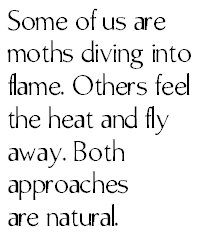Love is a gateway
We are gatekeepers
PRAXIS from Andrew Ramer
 Recently a friend invited to a theme party: bring the songs you were listening to when you came out. In a flash, music raced through my body with pain. My entire first relationship with a man arcs its way through three Aretha Franklin songs: “(Gotta Find Me an) Angel,” “Brand New Me,” and, “Until You Come Back to Me.”
Recently a friend invited to a theme party: bring the songs you were listening to when you came out. In a flash, music raced through my body with pain. My entire first relationship with a man arcs its way through three Aretha Franklin songs: “(Gotta Find Me an) Angel,” “Brand New Me,” and, “Until You Come Back to Me.”
1972. Berkeley. I’d just moved into a student coop. Shy, always eating alone, I looked up one day and saw a dark handsome man carrying his lunch tray across the crowded dining room. Felt as if a comet had streaked through my chest. Spent the next month spiraling around him till he noticed me and (amazingly) began to fall in love with me. Richard was my first embodied angel. Renovated me and made me new. Connected me to something I never knew existed, something I wanted to posses, which made him feel trapped and caused him to push me away. We spent more than a year in a dance of passionate love and soul-staggering closeness followed by his having sex with other men and me raging at him, sobbing, slamming doors, till he allowed me to ravish him again. Broken, aching, I moved to Seattle, where he sent me six and ten and twelve page love letters, begging me to come back. But when I did, to surprise him, he stared at me in the doorway as if I were an IRS agent come to audit him. Finally he invited me in. Of course we ended up in bed. After six more torturous months I fled to New York, in spite of his repeated protestations that he loved and wanted me.
A few years later he moved to New York. We talked once or twice a year, ran into each other on the street. Sometime in the middle of the 1980s, both of us single, we met for dinner and went back to his apartment, where we sat facing each other on opposite ends of his couch, talking, eating ice cream, our legs intertwined. I felt a mix of joy and terror, as if we’d never been apart. “Until you come back to me” was playing in my mind, but no clothes came off and we exchanged a long cautious hug when I left. He called me first thing in the morning to say he felt the same way I had. Promised to call in a day or two to set up another time to meet for dinner. Called three months later. Never returned my calls in between. Said, when we finally spoke, that he loved me but was afraid I’d go crazy on him again. It was like that till he died, another decade later. Affirmations of how much he wanted me in his life followed by another disappearance. In spite of our history, if he resurrected and I saw him walking down the street, I know the same joy I always felt with him would rush through me from toe to head, from heart to cock. And I’d want to be with him for some kind of forever, just as I had the first moment I looked up and saw his curly dark head and heard his funny nasal voice bouncing across the dining room.
In 1980 Christopher Isherwood gave me the secret to understanding love that I wish I’d had when Richard and I were together. Not that I ever meet Isherwood. I was working in a bookstore in Greenwich Village and opened a carton to find his new book, My Guru and His Disciple, which I devoured. In 1939 Isherwood met Swami Prabhavananda. Knowing at a certain point that the swami’s answer would determine whether or not he could continue to study with him, Isherwood posed this question: “Can I lead a spiritual life as long as I’m having a sexual relationship with a young man?” The swami’s answer to Isherwood surged through me and told me everything I needed to know: “You must try to see him as the young Lord Krishna.”
Hindus may have an easier time with this than others. For them God incarnates frequently. It’s probably a stretch for Christians, but not impossible to view the beloved as Christ. It’s a leap for many Muslims, but in Rumi and other Sufi poets we find acknowledgement of the union of beloved and Divine Beloved. Surprisingly, even Jews sometimes tiptoe toward this concept. Rabbi Abraham Joshua Heschel, a major theologian of the 20th century wrote: “To meet a human being is an opportunity to sense the image of God, the presence of God. According to a rabbinical interpretation, the Lord said to Moses: “Whenever you see the trace of man, there I stand before you.”
 Each time we cry out in the heat of passion, “O God,” we are affirming the truth of this delicious mystery. Too bad I didn’t understand it with Richard. Instead, I grabbed onto him, trying to possess the Divine flowing through him, which for some miraculous reason I was able to see, which filled me with passion in a way I’d never felt before. Given my inability to understand what was happening, and my sad attempts to possess what cannot be possessed – God shining through him – Richard was right to be wary of me.
Each time we cry out in the heat of passion, “O God,” we are affirming the truth of this delicious mystery. Too bad I didn’t understand it with Richard. Instead, I grabbed onto him, trying to possess the Divine flowing through him, which for some miraculous reason I was able to see, which filled me with passion in a way I’d never felt before. Given my inability to understand what was happening, and my sad attempts to possess what cannot be possessed – God shining through him – Richard was right to be wary of me.
Some of us are moths diving into flame. Others feel the heat and fly away. Both approaches are natural. Neither approach is wise. Both evade the real power of love, its capacity to bridge spirit and matter, mortal and immortal, human and divine. It’s not easy to comprehend and live by the swami’s message. But thirty years later, and a few more heartbreaks, I can listen to those same Aretha Franklin songs and hear God being sung to and singing through them. “Just because of you” is now, “Just because of You,” a psalm in gospel voice to the One who peers through the one I love. How about you?
- Do you remember the songs that were playing when you came out? Are you one of those people who have songs that conjure up all of your lovers? And do those songs continue to inform your love life, oracular reflections of your fate?
- What music have you been listening to lately? Whether or not you’re partnered, dating, having sex, not having sex – have you learned that our lovers aren’t a destination. They’re a gateway through which the Divine peers out at us. Are you able to see your beloved, beloveds, past, present, future, as the young Lord Krishna?
- If your answer to that question is No, what kind of practices might help you open your eyes to the Essence flowing through another man? Will reading poetry or listening to music help? Will dancing, meditating, praying before an image of something or someone that moves your soul provide the assistance you need? What else might work for you? Cooking, gardening, masturbating in a self-created sacred space?
- And perhaps more challenging – can you see yourself as the young Lord Krishna? Can you embody the Divine as well as be Its lover? What will it take for you to be so open, so transparent, that God can shine through you, whatever you call It, Her, Him? Breathwork and bodywork can open the blocked portals of perception and sensation. Devotion to your craft, whatever it is, can become your channel for the sacred to flow through you. What will work for you? Can you see your life as a journey toward Incarnation, making yourself an open gateway toward God for another man to witness and adore?
I wish that I had read Isherwood before I met Richard, and had friends old and wise enough to explain to me what the swami meant. (I met him once, and he did change my life. But that’s another story.) I wish that Richard had lived long enough for me to have this conversation with him. For me to be able to apologize to him for confusing kinds of love, not trusting love, and wanting from him what blessedly came through him. Instead, several weeks ago, I contacted his best friend Dan, a man I hadn’t seen in more than thirty years, who was kind enough to indulge my questions about Richard. All of which have led me to a place of gratitude and love abiding. Gone from the world, I can say of my love for that curly dark haired man – once God shined at me through him. And it now occurs to me that if God is beyond time and bodies, It must still be shining through the mortal angel I fell in love with, plastic lunch tray in his lovely hands, all those many years ago.
This is just an excerpt from this issue of White Crane. We are a reader-supported journaland need you to subscribe to keep this conversation going. So to read more from this wonderful issue SUBSCRIBE to White Crane. Thanks!
Andrew Ramer is a writer and educator. He is the author of numerous books including Revelations for a New Millenium, Little Pictures: Fiction for a New Age and the Gay classic Two Flutes Playing: A Spiritual Journeybook for Gay Men from White Crane Books.
Ramer lives in San Francisco. Praxis is a regular feature of White Crane.